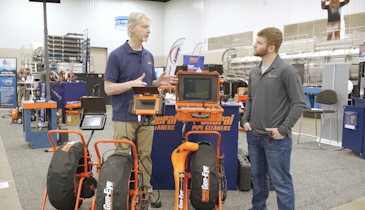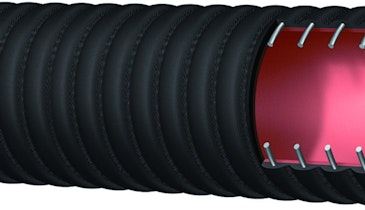If you’ve ever been on the local TV news as an environmental health expert, or been interviewed on the proper maintenance of a septic system for a newspaper’s home and garden section, you know how publicity can contribute to the success of your business.
But the truth is, many entrepreneurs make crucial mistakes when dealing with the media — and then end up on reporter’s block call or spam e-mail lists. You can avoid these pitfalls, however, by being aware of the dos and don’ts of dealing with reporters and editors.
Reporters, editors and producers are deluged with requests from hopeful business owners, corporate public-relations professionals and other people seeking coverage. Their days are spent meeting tight deadlines while doing large amounts of work, all the while constantly communicating with all of those publicity-seekers.
So, if you’re ready to get the publicity your business deserves, here are 12 tried-and-true ways to get the most out of your media contacts, and ensure reporters, editors and producers answer your calls and respond to your e-mails:
1. DON’T forge ahead with whatever is on your mind. DO ask if the reporter or editor is on deadline. Journalists’ time is as important as yours, and their deadline pressures are great. If they’re on deadline, ask for a good time to call back.
2. DON’T be self-promotional; DO share actual information with viewers or readers. DO give value-added tips, advice or information to improve people’s lives, offer insights or entertain. If you can achieve that goal every time, the media will always make time for you or even actively pursue you for interviews and articles.
3. DON’T ask the reporter to send you his or her article so you can review and approve it in advance. DO provide follow-up contact information and offer to be available to clarify any confusing points or answer additional questions. Offer to help the writer check facts or review small sections of the article for accuracy.
4. DON’T fail to prepare for interviews or fail to familiarize yourself with the readership or audience. DON’T assume everyone should be interested in your subject matter, just because. DO make sure your subject matter appeals to the media’s target audience. Read the magazines you want to be quoted in; watch the interview shows where you want to be a guest.
5. DON’T nag the reporter. DO space out your calls so you do not become a pest. Use e-mail rather than expecting to connect every time by phone — many journalists rely on e-mail as a way to get work done quickly, and many let most calls go to voicemail anyway.
6. DON’T assume the reporter or editor remembers who you are. DO remember they deal with multiple sources and many different subjects. Immediately identify yourself by name or by topic before launching into the purpose of your call — even if you spoke to the same journalist the week before.
7. DON’T delay when returning calls from reporters or fact-checkers. DO understand journalists are on deadline and need to speak with you now. If you snooze, you may lose the chance for an interview.
8. DON’T leave your contact information off press releases or e-mails. DO err on the side of giving too much information. Leave behind or mail in a business card. Send a follow-up e-mail with your phone number.
9. DON’T just talk about what’s important to you during an interview. DO answer the questions asked during the interview. You need to be responsive to the questions asked by the interviewer, or else the interviewer will be frustrated and never want you back. Also, know for a fact that the information you’re giving out is accurate. DON’T give out information unless you’re sure of it.
10. DON’T demand the article mention your company or your products. DO be happy that you are being interviewed. DON’T try to overly control the outcome. You’ll seem pretentious or worse if you try to put conditions on the interview, such as insisting you are the first person quoted in the story or the only expert mentioned. High-and-mighty attitudes will get you dropped from the interview lists immediately.
11. DON’T complain if the reporter gets the slightest thing wrong in the story. DO be happy if the reporter includes you, even if he or she left out a point or quoted someone else more than you. A mistake that seems big to you may be small in perspective. DON’T ask for a correction unless it’s absolutely necessary.
12. DON’T contact the reporter’s boss, editor-in-chief or the publisher if you’re unhappy with the way the story turned out. DO let an interviewer or reporter know if you’re unhappy, but do it respectfully, remembering to listen during the conversation. He or she may say something that will change your feelings. Always try to work out the difficulty directly with the journalist — it will deepen your relationship in the long run.
GET TO WORK
Work these practices into your dealings with the news media, and soon and you’ll have reporters and producers seeking you out whenever they need a contractor’s input for a story.





